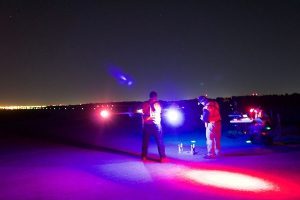 This week, the Federal Aviation Administration (FAA) and its partners are conducting detection research on unmanned aircraft (UAS) – popularly called drones – at Dallas/Fort Worth International (DFW) Airport.
This week, the Federal Aviation Administration (FAA) and its partners are conducting detection research on unmanned aircraft (UAS) – popularly called drones – at Dallas/Fort Worth International (DFW) Airport.
The DFW evaluation is the latest in a series of detection system evaluations that began in February 2016. Previous evaluations took place at Atlantic City International Airport; John F. Kennedy International Airport; Eglin Air Force Base; Helsinki, Finland Airport; and Denver International Airport.
Drones that enter the airspace around airports can pose serious safety threats. The FAA is coordinating with government and industry partners to evaluate technologies that could be used to detect drones in and around airports. This effort complies with congressional language directing the FAA to evaluate UAS detection systems at airports and other critical infrastructure sites.
At DFW, the Texas A&M University-Corpus Christi UAS test site is performing the flight operations using multiple drones. Gryphon Sensors is the participating industry partner. The company’s drone detection technologies include radar, radio frequency and electro-optical systems.
The FAA’s federal partners in the overall drone detection evaluation effort include the Department of Homeland Security; the Department of Defense; the Federal Bureau of Investigation; the Federal Communications Commission; Customs and Border Protection; the Department of the Interior; the Department of Energy; NASA; the Department of Justice; the Bureau of Prisons; the U.S. Secret Service; the U.S. Capitol Police; and the Department of Transportation. The work is part of the FAA’s Pathfinder Program for UAS detection at airports.
The FAA intends to use the information gathered during this assessment and other previous evaluations to develop minimum performance standards for any UAS detection technology that may be deployed in or around U.S. airports. These standards are expected to facilitate a consistent and safe approach to UAS detection at U.S. airports.



